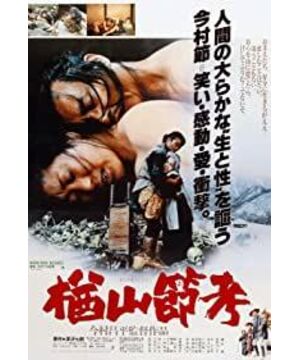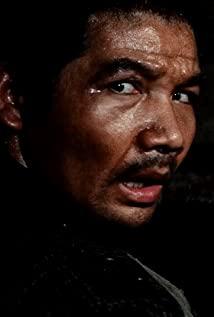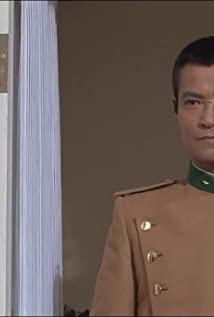"Narayama Festival Kao", a story about a group of mountain people. The story is delicate, cruel, beautiful, raw, brutish, yet simple. Simply, you can only use some words to describe it, not sentences. As you comment on your impressions of it, you can only jump quickly and say, this, oh, that—the abundance of information robs you of the ability to connect with these hazy, unconceptualized feelings. You are caught by the truth, and you are attracted by the nothingness; you think you will find an exit when you see the truth, but violence draws you into the whirlpool of emotion again. All in all, this film is surprisingly simple.
Excretion, masturbation, bestiality, voyeurism, wild sex, these scenes that often appear in Western movies have their symbolic meanings in the East as "taboos". These situations are more likely to occur in more isolated areas. However, these areas with a high degree of openness have not disappeared, but have been hidden in the city and combined with modern civilization. These come in the form of pinhole cameras, professional porn, cars, sex shops, and more. Through the transformation of technology, people have obscured the original naked words. The great intermediary, the instrument of happiness, is a means invented by civilized men. Emotions can no longer be vented in direct and raw ways, because people realize that privacy is more important than venting. Direct means are too easy to be exposed, and it is too easy to be discovered by the elder brother like Lisuke in the movie, grabbed and beaten-of course, we may not have such danger, but the fear of others still exists.
Tradition is like this. When a person reaches the age of 70, no matter whether he is healthy or not, he has to be carried up the mountain by his children to meet the mountain god - of course, to die. This is a process of self-deception by village residents. Everyone knows that the advantage of this is to save a ration. It's a law of survival. The so-called law of survival means that all ethics and morality must be based on it. The elderly should understand that giving up their lives is for the success of the family; the younger generation should know that cherishing the life of the elderly is a form of filial piety, which has failed one of the natural purposes of human beings—inheriting incense.
The power of tradition cannot be violated. Those who disobey will be ridiculed by the whole village. The will of the whole village is a decree. Just as they can take away the names of the whole family of Rain House who stole. The control of the public will over private life is so imminent under the premise of poor living conditions that people have no time to think, but to compromise. The result of such a compromise is a feeling of self-deception. The legend of the mountain god has nothing to do with the life of the local people, but it has become a belief of the residents. The scene of the dying Ah Zhen Po who was waiting for her death on the mountain after finishing all the funerals was so peaceful. The Japanese favorite snow covers Ah Jin Po who sits cross-legged. With her hands folded, she seems to have merged with her surroundings, reaching a state of bliss in a kind of meditation.
Completing the journey of life certainly doesn't have to be rushed. In contrast, the father who resisted to die and was pushed off the cliff by his son looked vulgar. The existence of life is not important, what is important is the fulfillment of the tasks given by this statement. Of course, as for the significance of this task, and even whether it is meaningful, it all lies in the achievement of this task. The bones on the top of the mountain made the son have the idea of giving up, but the mother's generous determination to die forced the son to believe that he was giving his mother real happiness. And her own reluctance will only disturb her mother's path to bliss.
Obviously, there are too many human thoughts here. Human, too human. After the tide of thoughts receded, I found that I became more and more interested in the Japanese view of life and death.
View more about The Ballad of Narayama reviews










